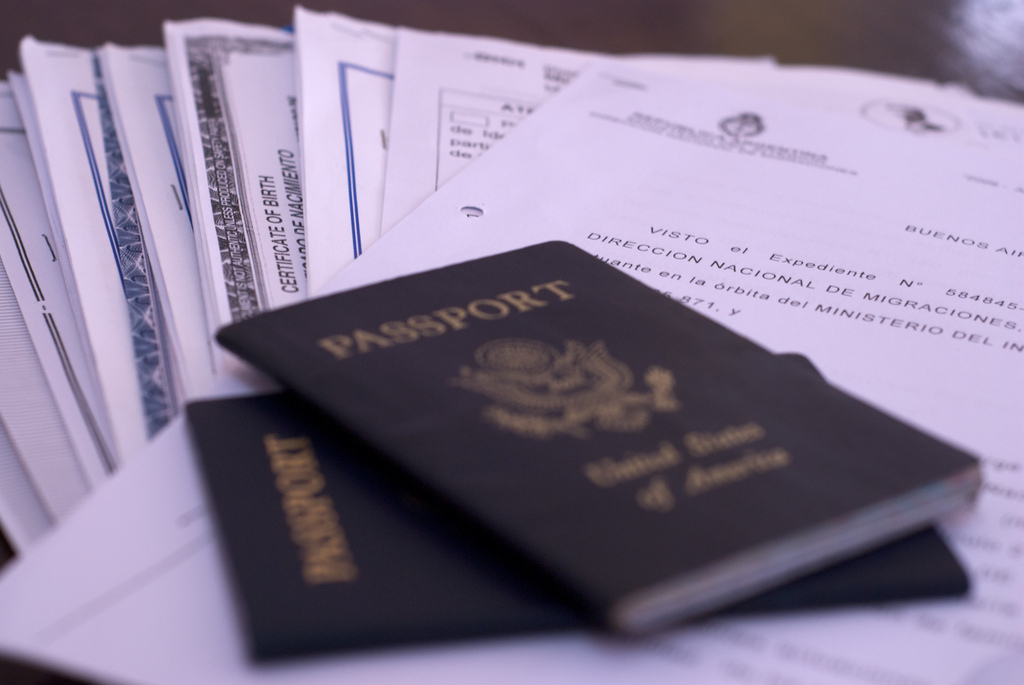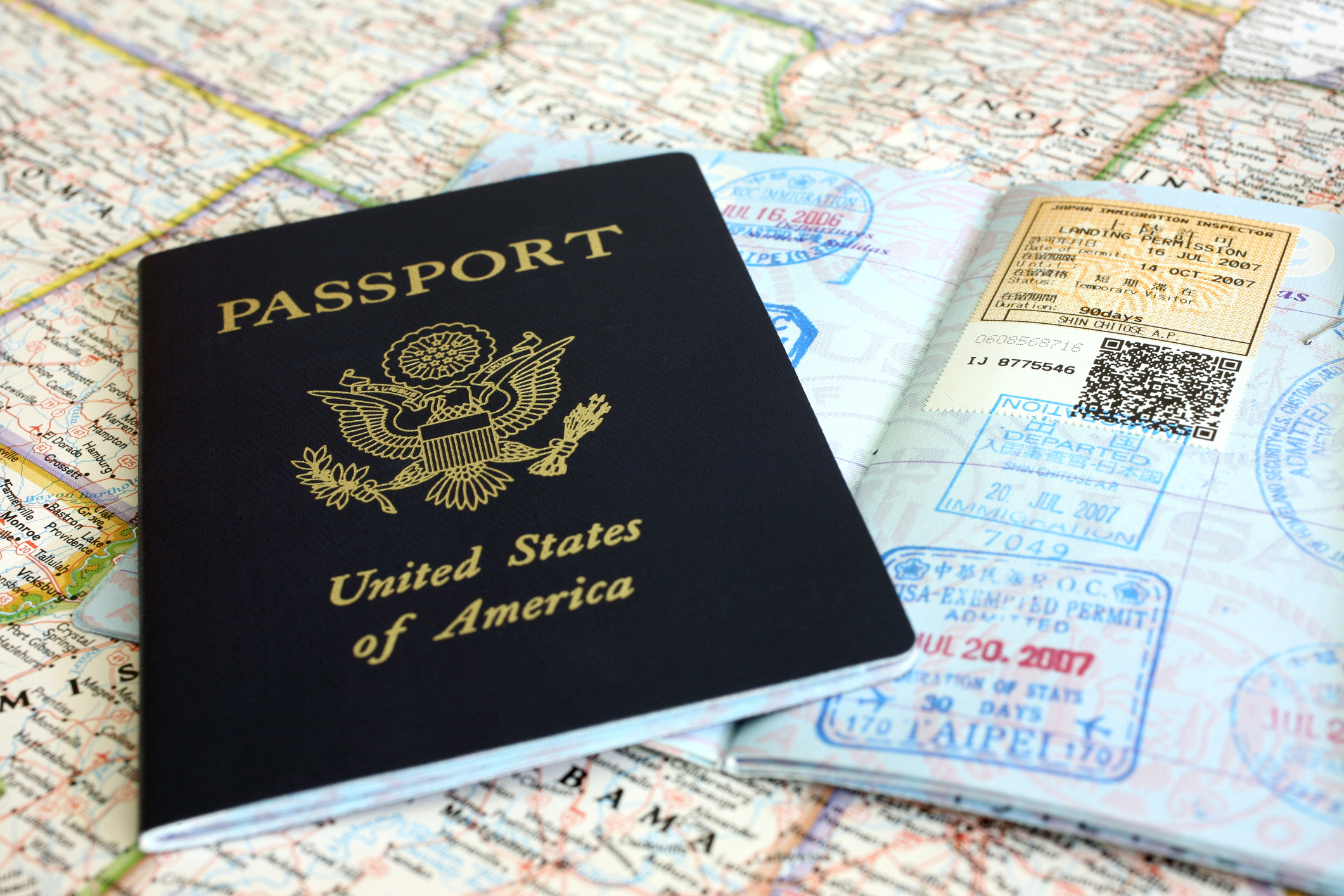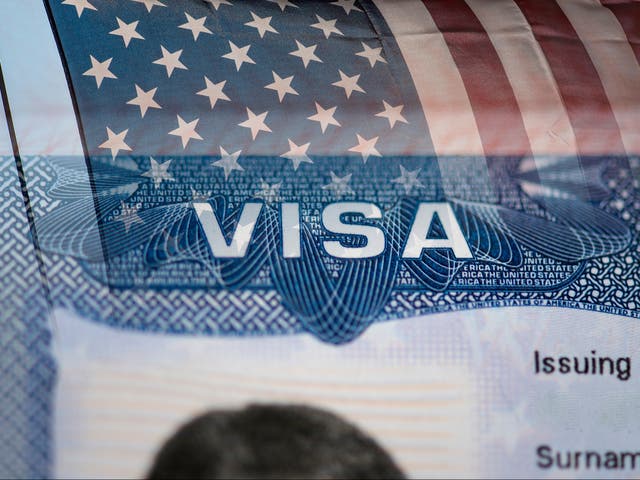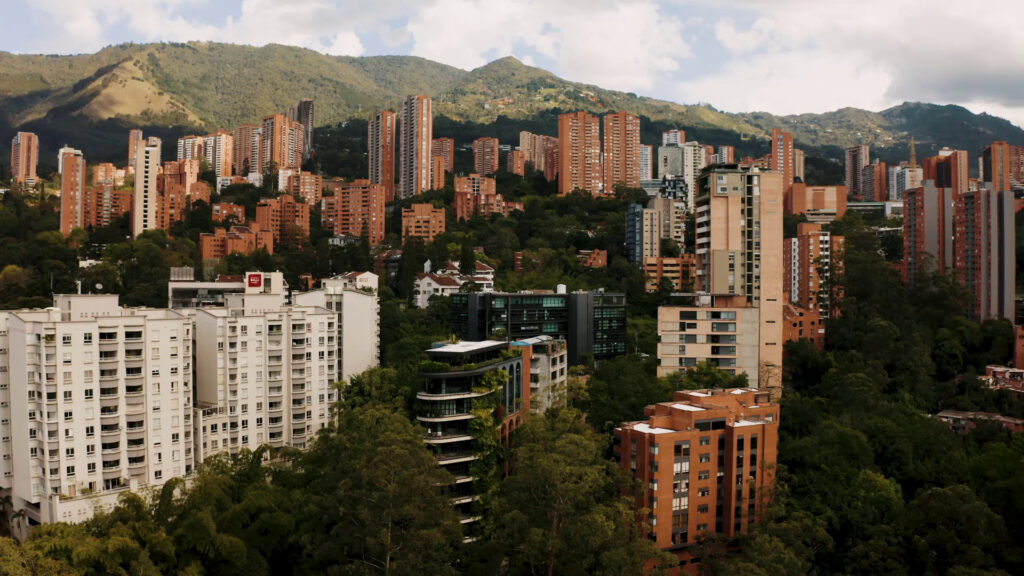TLDR? The Colombian marriage visa is granted to foreigners who are married to Colombian nationals.
There are a number of different visas that might be appropriate for you to stay in Colombia. If you happen to have a Colombian partner, the marriage visa might be one of them.
Whether you just want to cross off all the options or you’re in the middle of processing your own Colombian marriage visa, this guide is for you.
Here you’ll find what you need to know about visas in Colombia and how to get a marriage visa.
Types of Visas in Colombia

Colombia has several different types of visas according to what a foreigner wants to do while staying in the country.
Before we jump into talking about marriage visas specifically, let’s get a feel for the different types of visas currently available in general.
Resident Visa: Type R
Resident visas are sort of like the US green card. They’re long-term visas for those who are permanently living in the country.
Here are some of the requirements for a resident visa:
- Have been a type M visa holder for 5 uninterrupted years or
- Be the parent of a Colombian national or
- Be the self-sufficient beneficiary of a Type R visa holder for 5 years
- Be the beneficiary of someone who is has had a Colombian marriage visa for 3 years
Migrant Visa: Type M
The type M visa is what you’ll typically get if you want to stay for a longer period of time in the country. You must already have a Type M visa in order to request a Type R visa.
Here are some of the situations where you can ask for a Type M visa:
- Refugee
- Worker
- Partner of a Colombian natonal
- Independent professional
- Pensioner
These aren’t the only situations where you can request a Type M visa, but they are some of the most common.
Visitor Visa: Type V
This type of visa is for temporary entry into the country several times without the intention to stay. With this type of visa, you can perform different activities within the country, such as:
- Get medical treatment
- Volunteer
- Travel
- Visit friends and family
Most Americans and EU citizens don’t actually need a Type V visa to enter the country as long as they stay for 90 days or less. However, if you want to stay for longer, you’ll need to extend your tourist visa.
To figure out whether or not you need a Type V visa to enter Colombia, you can visit the Ministry of Foreign Affairs’s website.
Requirements for Obtaining a Visa

The country has established specific requirements to obtain any visa. Here are the requirements:
- Fill out an electronic form on the website of the Chancellery.
- Copy of the main page of your passport or travel document.
- Provide a recent digital photo against a white background.
Requirements for Minors
If you are a minor, there are a few additional requirements you’ll need to meet in order to obtain a Colombian visa.
These include:
- Present a birth certificate or document supporting the minor’s guardianship or parental authority.
- Present a letter signed by the legal guardian or one of the minor’s parents stating who will take care of the minor.
- In case the parents or legal guardians are not the ones who sign the above letter, you must submit a letter of acceptance by the person who will take care of the minor.
How to Apply for a Visa in Colombia

Applying for a visa in Colombia is actually pretty easy. You can just fill out the form online. And, you can actually translate it into English.
Prior to the COVID-19 pandemic, all applications required an in-person visit to the Ministry of Foreign Affairs in Bogota. However, this is no longer required.
Just fill out the online form, make your payment, and wait to hear back about the visa.
How to Check the Status of Your Visa
This is pretty straightforward. The government sends out regular email updates alerting you to issues with your application. If there are no issues, you’ll just get a resolution once the visa has been approved or denied.
If you don’t receive an email for some reason, you can check your visa status by entering the procedure page of the government website.
You just have to have the application number handy.
How to Obtain a Colombian Marriage Visa

Now that we’ve got the basics of Colombian visas out of the way, let’s go over how to get a marriage visa specifically.
The marriage visa in Colombia is an M visa and is granted to foreigners who are married or have a permanent partner of Colombian nationality.
Before obtaining this visa, you should know that you will not be able to stay out of the country for more than six consecutive months. If you don’t travel to Colombia for more than six consecutive months, your visa will lose its validity.
You also need to know that visas in Colombia have changes in legislation in 2022 thanks to the new resolution 5477. The new legislation will take place on October 22, 2022, so it’s important to read what’s changing.
Many visa requests are actually being frozen until the changes take place. So, be sure to keep this in mind when applying for a marriage visa.
Previously there was only one type of Colombian marriage visa, which recognized both De Facto Marriages and Civil Marriages as marriage. With the new legislation, however, Civil Marriages and De Facto Marriages will be recognized differently.
Let’s take a look at each of these legislations.
M Visa: Spousal Visa (Civil Marriage)

If you’re applying with a legal civil marriage, the following are the requirements:
- Authenticated copy of the marriage record not exceeding three months at the time of applying for the visa.
- Letter from the Colombian accrediting the union and coexistence with the foreigner. The Colombian must provide contact details (address, telephone, and email) in addition to including a copy of his ID.
- In this case, the visa authority may request additional proof of the union and even request an interview from both parties.
- This type of visa grants a work permit allowing the foreigner to perform any type of legal activity in the country.
- The visa is valid for 3 years.
- This type of visa allows you to accumulate time for the R visa application.
M Visa: Permanent Partnership Visa (De Facto Union)
This visa is for foreigners a de facto partnership with a Colombian, often called a Civil Union in other countries. This visa has the following requirements:
- This visa helps to accumulate time to apply for an R visa.
- You must present legal support issued no more than 3 months old.
- Letter from the Colombian partner that supports the constant union where he undertakes to report any change in the relationship to the Colombian authority, in addition to attaching his contact information (address, telephone and email).
- The authority may also request other types of evidence of the union and request an interview if necessary.
- It is valid for 1 year.
- This type of visa also grants a work permit for the execution of legal activities within the country.
What to Know About Marriage Laws in Colombia

Part of getting a marriage visa in Colombia involves getting married! So, it pays to know a little bit about Colombian marriage laws.
Colombia is not a retrograde country in terms of marital partnerships, and unlike countries like the United States, your marriage will be legal throughout the country. This is true regardless of the type of marital union you have and whether you are in a heterosexual or homosexual relationship.
Speaking of homosexual relationships, Colombia recognizes all homosexual marriages as legal.
Another unique thing about Colombia is something called a union libre. This means “free union” and refers to living with your partner without being legally married. A couple is considered to be in a union libre if they have been living together for more than two consecutive years.
You can also go to the notary to certify a legal union by making a declaration sworn under oath. This doesn’t count as a marital union, but you can switch to a union marital de hecho or de facto marital union, which is recognized.
Prenuptial Agreements
By mutual agreement as a couple and if assets or properties are involved, many couples opt for this benefit.
This is important for de facto marital unions or free unions because, under Colombian law, after two years of living with a partner, you are each entitled to 50% of the other person’s property.
You’ll need to speak with a lawyer if you want to establish a prenuptial agreement with a partner.
What to Know If You Want to Terminate a Colombian Marriage
If things don’t work out as planned, you might actually need to terminate a Colombian marriage. Luckily, the visa will keep its validity until its expiration date.
However, once the visa expires, you’ll need to apply for a new type of visa.
If it does amount to terminating a Colombian marriage, there are two different types of divorce you can get. Each one has its own laws.
Divorce by Mutual Agreement

To start this type of divorce, you must request the help of a lawyer and go to a notary in Colombia. There are two types of mutual divorces, those with children and property and those without children and property.
In both cases, both parties agree to the divorce, and the lawyer they have hired can proceed with the divorce by going to any notary on national territory. The divorce will proceed regardless of whether or not the parties are in the country.
On top of that, the liquidation of assets must be specified. The parties can determine how they’d like to split up their assets between them or they will automatically be set to 50% each. If there are no assets, the settlement amount will be zero.
In the event that there are children involved, both parties will have to define who will have custody of the minor children and who will be in charge of child support payments. They will also have to define any joint custody arrangements and specify dates and times of visits.
Finally, in order for the lawyer to carry out the procedures in the notary’s office, a power of attorney must be signed to make the divorce deed official with his signature.
Divorce Without Mutual Agreement

In this case, the divorce will have to be brought before a judge, which means that one of the divorce parties will sue the other.
In this case, the plaintiff can provide evidence that supports, as the case may be, different situations or aggravating factors that are part of this decision. Here are some examples:
- Extramarital affairs.
- Alcoholism and/or use of hallucinogenic substances without a prescription.
- Physical and verbal abuse.
- Jealousy.
- Physical separation for more than two years.
- Among others.
This type of divorce includes hearings, presentation of evidence, and witnesses. In addition, depending on the process, it can take from several months up to a year.
If the trial is successful, another process for liquidating assets will be ordered.
Frequently Asked Questions About Colombian Marriage Visas
Still got a few questions about Colombian marriage visas? Here are a few frequently asked questions to be aware of.
Will There Be Any Changes to the Visa Types?
The answer is no. The same types of V, M, and R visas will continue. The difference is that this new standard adds some changes in time of issue, visa categorization, and visa requirements.
What to Do if You Already Have a Visa?
This new rule will not affect visas granted before their validity. In other words, if you already have a visa, you won’t be affected until it’s time for you to renew.
What Are the Changes in Visa Types?
Four new V (visitor visas) will be added, including the Digital Nomad, Rentier, Student, and Voluntary visas. The other changes include type M (migrant) visas for foreigners in partnerships with a Colombian or who are the parent of a Colombian national.
Get Married in Colombia Without Problems
Now that you know about Colombian marriages and visa laws, you’re ready to tie the knot! Whether you’re here for a short stay or have fallen in love with one of the country’s wonderful citizens, this is a great place to check out.
If you like this blog, you might like the Casacol Instagram page to keep up with all the new articles. Anything we need to update or correct? Care to contribute? Email us at blog@casacol.co






